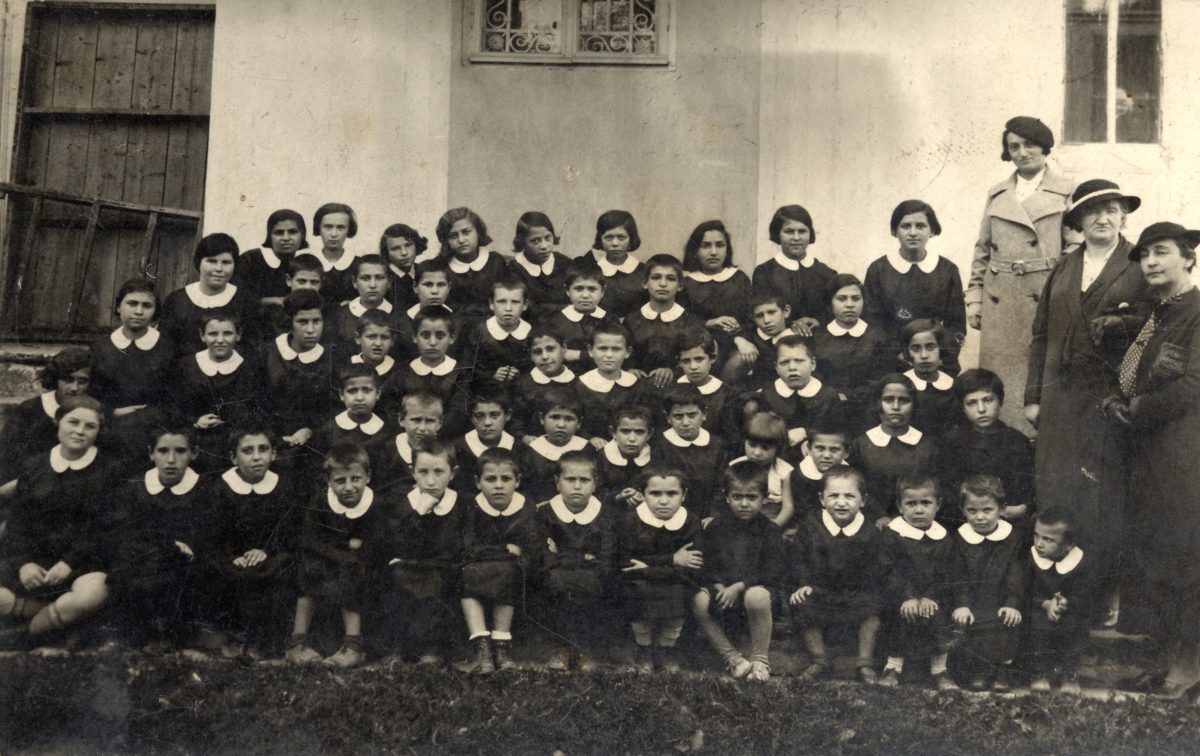In 1920, the orphanage for Jewish girls was opened on Ostrovskaya Street 8, now Strada Alexandru Lapusneanu. The institution was founded by Elena Abramovna Babich, a distinguished woman in Chișinău who looked after the orphans and also after Jewish widows and the poor who suffered from the aftermath of World War I, or had fled the pogroms in Ukraine.
One of the girls who spent much of her childhood in the Jewish orphanage was Shlima Goldstein, born on February 17, 1930 – a day after her father’s death. She lived in the orphanage with her older sister until the facility closed in 1940. In the Centropa interview, she remembers life in the orphanage:
The orphanage was established in a two-story house. There were two bedrooms on the first floor, one for older girls and one for small kids. There was a big dining and living room on the first floor where we had meals, played and where older girls did their homework. We wore black uniform robes with white collars and had them washed once a week. We also had a shower once a week in the orphanage. Once a month we went to a public bath. In the bath our clothes were treated to protect them from lice while we were taking a bath. Once, I stayed in the bath until late and was late for dinner. The cook gave me the leftover soup: it was thick, with noodles, beans and the meat and I ate to my heart’s content and remembered this soup for a long time thinking how lucky I had been.
We didn’t have sufficient food in the orphanage. We mainly had cooked cereals like porridge, pearl barley, millet, and at lunch we had thin soup with a slice of bread, but with no butter or oil, this was low calorie food, and we got little of it, we rarely had meat or fish – only on holidays. I remember I always dreamt of having as much food as I wanted, and the other girls felt the same. […] We had a slice of bread and baked apple slices that tasted like a delicacy to us. Apples were picked in the garden which belonged to the orphanage. There was a high fence around it and we could only see the top branches of the old trees. We weren’t allowed to go to the garden. When we began to study religion, I learned about hell and paradise. I imagined this garden was paradise and I wanted to go there so much.
We observed Jewish traditions in the orphanage. On Friday we went to the synagogue. […] In the evening the older girls lit candles in the orphanage, and we celebrated Sabbath. We also celebrated Jewish holidays in the orphanage. On Hanukkah we had potato pancakes, doughnuts with jam and were given little gifts. If only they had given us more pancakes and doughnuts – I could never have enough food. On Purim we had costumes made for us: paper collars and masks, and we sang merry songs. […]
My favorite holiday was Pesach. A few days before the holiday the janitor and his wife whitewashed the building, changed the curtains and tablecloths and we knew the holiday was forthcoming. We sat at the festive table and waited for the patroness of our orphanage, Helena Babich, and her husband. I don’t know what her husband did, he may have been a businessman, they just always came together. […] I don’t remember whether there was all food according to the Haggadah on the table, but we were happy to have hot beef broth, chicken, eggs, potatoes – there was plenty of food to make us feel happy.
When Soviet authorities took over the administration in Chișinău in 1940, the Jewish orphanage for girls was closed. All the city’s orphans were brought together in one central facility. Shlima Goldstein and her sister were among them.
